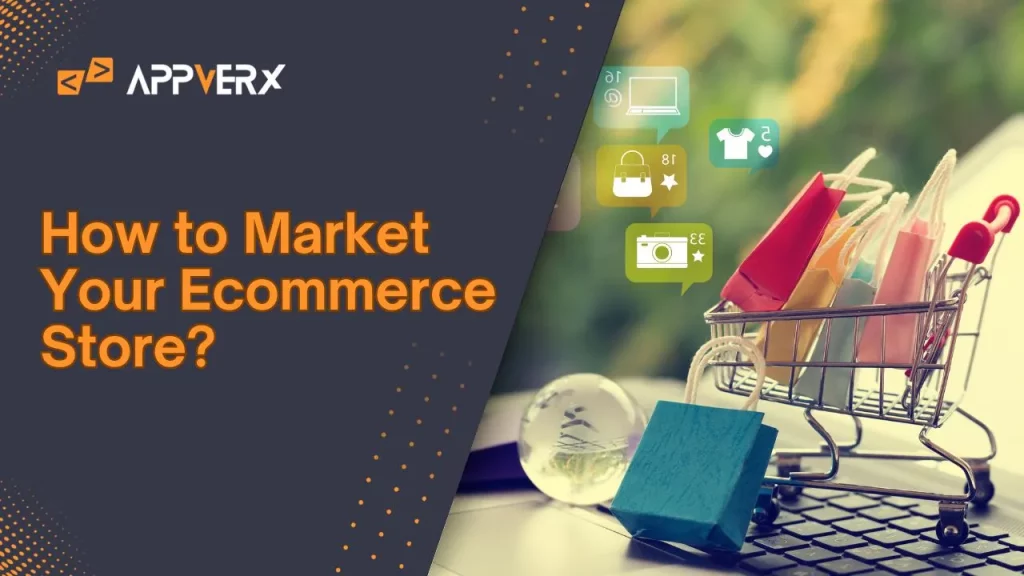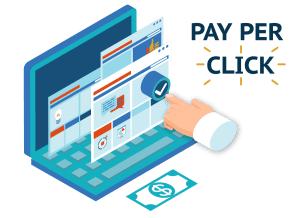Starting an ecommerce store is like opening a door to a vast marketplace where the competition is fierce, but the opportunities are boundless. In this guide, we’ll explore the art of marketing your ecommerce store, unravelling the secrets to attract more customers, increase traffic, and ultimately boost your sales.
Explore our Ecommerce Marketing services to take your online business to new heights with strategic and tailored marketing solutions.
Understanding Your Audience
To effectively market your ecommerce store, you need to understand who your customers are. You will be able to reach the right people with the right message when you define your target audience and create detailed buyer personas.
- Defining Your Target Audience: Analyze what your ideal customer looks like, what they like, and what they do. This includes age, gender, location, interests, and online behaviour.
- Creating Buyer Personas: Include job roles, challenges, goals, and preferred communication channels in detailed profiles of your ideal customers.
Crafting a Unique Selling Proposition (USP)
Who are you and what do you do that sets you apart from the competition? What makes your brand unique and why customers should choose you is your Unique Selling Proposition (USP). During this session, we will discuss identifying and showcasing your USP in marketing campaigns.
- Differentiating Your Ecommerce Store: Analyze your competitors and pinpoint what makes your store unique. It could be product quality, pricing, customer service, or a combination of factors.
- Highlighting Your USP in Marketing: Integrate your USP into your branding, messaging, and advertising. Communicate to your audience why your ecommerce store is the best choice.
Optimizing Your Website for Search Engines
The cornerstone of effective online marketing is a meticulously optimized website that serves as the linchpin of your digital presence. Delving into the depths of search engine optimization (SEO) specifically tailored for ecommerce, our journey will unravel the intricacies of enhancing your store’s visibility on search engines. In this comprehensive exploration, we’ll not only navigate the terrain of on-page SEO strategies, which involve fine-tuning elements within your website like meta tags, content quality, and strategic keyword placement but also delve into the dynamic realm of off-page SEO techniques.
Importance of SEO:
In the highly competitive world of ecommerce, SEO acts as the guiding force that directs potential customers to your virtual storefront. By optimizing your website for search engines, you not only increase visibility but also establish a strong online presence, ensuring that your products are discovered by those actively searching for them.
On-Page and Off-Page SEO Techniques:
On-page SEO involves refining elements within your website, such as meta tags, content, and keyword placement, to enhance its search engine visibility. Off-page SEO, on the other hand, focuses on external factors like backlinks and social signals, contributing to your site’s authority and credibility in the vast digital landscape. Balancing these techniques is key to a holistic and effective SEO strategy for your ecommerce success.
Leveraging Social Media Marketing
Nowadays, social media is dominant, so it is essential to have a strong online presence. We’ll guide you through building a social media strategy for your ecommerce store, identifying the most effective platforms, and creating engaging content that resonates with your audience.
- Building a Social Media Presence: Make sure your audience is aware of your presence on relevant platforms. Utilize direct messaging, comments, and posts to engage with your audience.
- Effective Platforms for Ecommerce: Identify platforms like Instagram, Facebook, and Pinterest that align with your product and target demographic. Take advantage of the strengths of each platform with your content.
Content is King: Content Marketing Strategies
An effective online marketing strategy starts with high-quality content. We’ll discuss the importance of content marketing for ecommerce, exploring various content types such as blogs, videos, and infographics that can elevate your brand and engage your audience.
- Importance of Quality Content: Understand how high-quality content contributes to brand credibility, SEO, and customer engagement.
- Blogging, Videos, and Infographics: Explore the benefits of blogging for SEO, creating engaging product videos, and using infographics to simplify complex information and capture attention.
Email Marketing for Ecommerce
Connecting with your audience is easier when you build and nurture your email list. We’ll show you how to implement effective email marketing strategies to drive repeat business, foster customer loyalty, and foster customer loyalty.
- Building and Nurturing Your Email List: Implement strategies like offering incentives for sign-ups and ensuring a seamless user experience on your website.
- Crafting Engaging Email Campaigns: You can create customized email campaigns, newsletters, and drip campaigns. Segment your audience for targeted messaging.
Pay-Per-Click (PPC) Advertising
PPC advertising is best for immediate visibility if you want to get your message across quickly. We’ll cover the basics of Google Ads and social media ads, helping you create targeted campaigns that align with your budget and business goals.
- Google Ads and Social Media Ads: Understand the fundamentals of creating effective ads on platforms like Google, Facebook, and Instagram. Set budgets, define target audiences, and monitor performance.
- Budgeting and Targeting: Identify your business’s goals and develop a budget accordingly. Refine targeting parameters to ensure your ads reach the most relevant audience.
Influencer Marketing
In a world dominated by social media influencers, collaborating with them can significantly boost your brand’s reach. We’ll explore the ins and outs of influencer marketing, guiding you on how to identify, approach, and maximize the impact of influencers on your ecommerce store.
- Collaborating with Influencers: Identify influencers in your niche, approach them with genuine proposals, and build relationships for long-term partnerships.
- Maximizing Influencer Reach: Strategically plan influencer collaborations to coincide with product launches, promotions, or other key events. Leverage their audience to increase brand visibility.
Offering Discounts and Promotions
Attracting customers often involves sweetening the deal. We’ll discuss the art of offering discounts and promotions strategically, exploring the impact of seasonal promotions, sales events, and exclusive deals on customer acquisition and retention.
- Attracting Customers with Deals: Develop a pricing strategy that includes occasional discounts, bundle offers, and loyalty programs to attract and retain customers.
- Seasonal Promotions and Sales Events: Plan promotions around holidays, seasons, or special events. Bring urgency to the situation in order to get people to act immediately.
Enhancing User Experience
In order to convert visitors into customers, your website must be user-friendly. We’ll delve into the importance of website design and how simplifying the purchase process can significantly enhance the user experience and contribute to your ecommerce store’s success.
- User-Friendly Website Design: Ensure that your website is mobile-friendly, easy to navigate, and loads quickly. Create clear calls to action to guide visitors.
- Simplifying the Purchase Process: Streamline the checkout process, minimize form fields, and offer multiple payment options. Make sure your shopping experience is hassle-free and secure.
Customer Reviews: Gathering and Utilizing Them
The feedback of customers is one of the most valuable assets in the industry. We’ll guide you through the process of gathering and utilizing customer reviews, building trust with your audience, and leveraging positive testimonials to strengthen your brand image.
- Importance of Customer Feedback: Understand the impact of customer reviews on brand reputation, trust, and conversion rates.
- Building Trust through Reviews: Through post-purchase e-mails, ask customers for reviews. Be professional when responding to positive as well as negative reviews.
Analyzing and Adapting Strategies
The digital landscape is ever-evolving, and successful ecommerce marketing requires adaptability. We’ll explore the use of analytics tools to monitor your performance, analyze market trends, and adapt your marketing strategies for sustained success.
- Using Analytics Tools: Use analytics platforms such as Google Analytics to track traffic to your website, user behavior, and conversion rates.
- Adapting to Market Trends: Understand consumer preferences, industry trends, and emerging technologies. Stay ahead of the competition by adjusting your marketing strategies accordingly.
Free Marketing Tools
Running a successful store doesn’t always require a hefty budget. With our introduction to essential free marketing tools, such as Google Analytics and Google Search Console, you will be able to improve your marketing efforts significantly.
- Utilizing Google Analytics and Search Console: These free tools are ideal for monitoring your website’s performance, identifying improvements, and identifying opportunities for improvement.
- Social Media Management Tools: Analyze social media performance, schedule posts, and monitor engagement with free tools like Buffer and Tailwind. To maximize your impact on social media, streamline your efforts.
Beyond Online: Offline Marketing Strategies
While online marketing is essential, offline strategies can also play a crucial role in your overall marketing mix. We’ll explore the possibilities of hosting events, collaborations, and connecting with local communities to amplify your store’s reach.
- Hosting Events and Collaborations: Organize virtual or physical events related to your niche. Make connections with local businesses or influencers to reach a broader audience.
- Connecting with Local Communities: Engage with local communities through sponsorships, partnerships, or participation in community events. Build a strong local presence to complement your online efforts.
Conclusion:
In conclusion, mastering the art of marketing your ecommerce store involves a multi-faceted approach. By understanding your audience, crafting a compelling USP, optimizing for search engines, and utilizing various marketing channels, you can create a robust strategy that propels your business to new heights.
FAQs:
How long does it take to see results from ecommerce marketing strategies?
Results vary, but consistent efforts usually yield noticeable improvements within 3 to 6 months.
Is influencer marketing effective for small ecommerce businesses?
Yes, Small businesses can benefit greatly from influencer marketing, which often offers cost-effective exposure.
What role do customer reviews play in ecommerce marketing?
Customer reviews build trust and credibility, influencing purchasing decisions and enhancing your store’s reputation.
Can I market my ecommerce store without spending on advertising?
Yes, utilizing organic strategies like SEO, content marketing, and social media can effectively promote your store without significant advertising costs.
How often should I update my ecommerce website for optimal performance?
Regular updates, at least quarterly, ensure your website stays current, appealing, and aligned with market trends.
Are there any risks involved in offering frequent discounts?
While discounts attract customers, over-reliance can impact profit margins. Strategically plan promotions to balance customer attraction and profitability.






